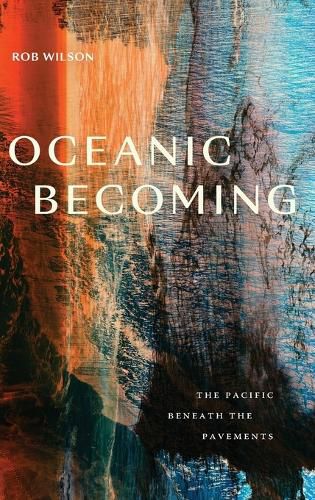Readings Newsletter
Become a Readings Member to make your shopping experience even easier.
Sign in or sign up for free!
You’re not far away from qualifying for FREE standard shipping within Australia
You’ve qualified for FREE standard shipping within Australia
The cart is loading…






From disappearing coral reefs and ocean acidification to floating great garbage patches, the Pacific Ocean is an ever-present reminder of the Anthropocene. In Oceanic Becoming, Rob Wilson demonstrates that in the midst of the planetary crises the Pacific now faces, it must be understood as interconnected to the other oceans. Wilson frames this interconnection as "Oceania," reconceiving the world oceans as tied to sites of urban dwelling and life sustenance-from Boston to Brisbane-that are increasingly threatened by late capitalism. Confronting these threats, Wilson argues, requires a project he theorizes as "worlding"-a process of world-making and world-remaking across Oceania that would create new forms of belonging and connection at local, regional, and transnational levels. Wilson shows how Oceania is not just a site of peril but one charged with emergent literary and social formations that can provide the basis for new solidarities, futures, and ecologies.
$9.00 standard shipping within Australia
FREE standard shipping within Australia for orders over $100.00
Express & International shipping calculated at checkout
From disappearing coral reefs and ocean acidification to floating great garbage patches, the Pacific Ocean is an ever-present reminder of the Anthropocene. In Oceanic Becoming, Rob Wilson demonstrates that in the midst of the planetary crises the Pacific now faces, it must be understood as interconnected to the other oceans. Wilson frames this interconnection as "Oceania," reconceiving the world oceans as tied to sites of urban dwelling and life sustenance-from Boston to Brisbane-that are increasingly threatened by late capitalism. Confronting these threats, Wilson argues, requires a project he theorizes as "worlding"-a process of world-making and world-remaking across Oceania that would create new forms of belonging and connection at local, regional, and transnational levels. Wilson shows how Oceania is not just a site of peril but one charged with emergent literary and social formations that can provide the basis for new solidarities, futures, and ecologies.